In this article, I’ll discuss how to use thiamine for alcohol withdrawal. Also known as vitamin B1, thiamine is involved in a range of bodily functions that become damaged by prolonged alcohol exposure.
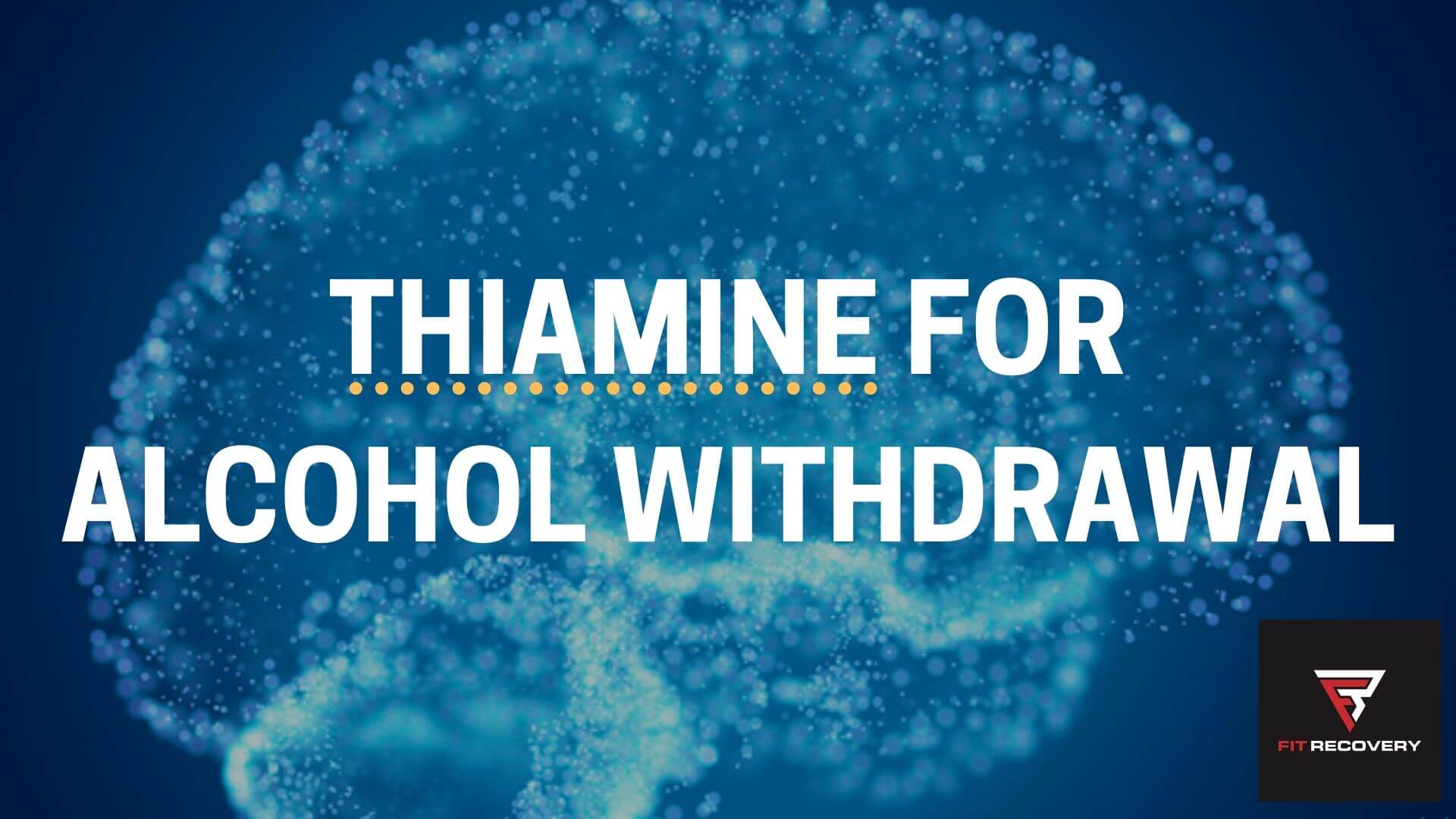
One of the tragedies of alcohol recovery is that many people find that they do not feel better within a few weeks or even a few months. This sense of malaise is almost always caused by prolonged nutrient imbalances that need to be proactively managed!
I know from experience that supplementing with vitamins like thiamine can go a long way in alleviating withdrawal and making life feel livable again. The best part is that once you have restored your thiamine levels, you will not need to take thiamine supplements anymore.
Dosage For Alcoholics: Why Do We Need Thiamine?
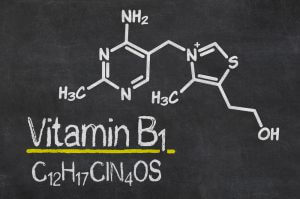
You might have heard that heavy drinking can deplete thiamine levels. So, what exactly is it that we need thiamine for?
Vitamin B1 is a cofactor for enzymes that are involved in the production of energy, neurotransmitters, and even hormones.
In a nutshell, thiamine is used for the following mechanisms:
- Helps the body convert carbohydrates into energy
- Involved in the synthesis of neurotransmitters
- Protects brain and nerve cells
Thiamine is necessary for the proper functioning of the brain, nervous system and cardiovascular system. Left untreated, thiamine deficiency damages all three of these bodily systems – sometimes irreparably. This is why it’s so important to supplement with thiamine for withdrawal.
Symptoms of Thiamine Deficiency
Symptoms of alcohol-induced thiamine deficiency can be subtle (e.g., headaches) or visible and disturbing. The best way to determine whether you have a thiamine deficiency is to get your blood tested by medical professionals.
However, if you are an alcoholic, there is an 80% chance that you have some level of thiamine deficiency caused by alcohol exposure. (source)
The following are symptoms of thiamine deficiency:
- Poor short-term memory
- Poor focus
- Nerve damage
- Arm and leg numbness
- Anxiety
- Pulsing headaches
- Coordination problems
- Vision problems
- Confusion
- Wernicke-Korsakoff Syndrome (aka Wet Brain Syndrome)
Wernicke-Korsakoff Syndrome is a form of irreversible alcoholic dementia caused solely by vitamin B-1 deficiency. A complication of this disorder, known as Korsakoff’s Psychosis, is the most extreme consequence of this deficiency. However because thiamine is necessary for so many cellular functions, brain damage caused by a lack of thiamine can result in a range of less extreme symptoms.
Around 13% of alcoholics develop Wernicke-Korsakoff Syndrome, and almost all instances of this condition in developed countries are caused by intemperance.
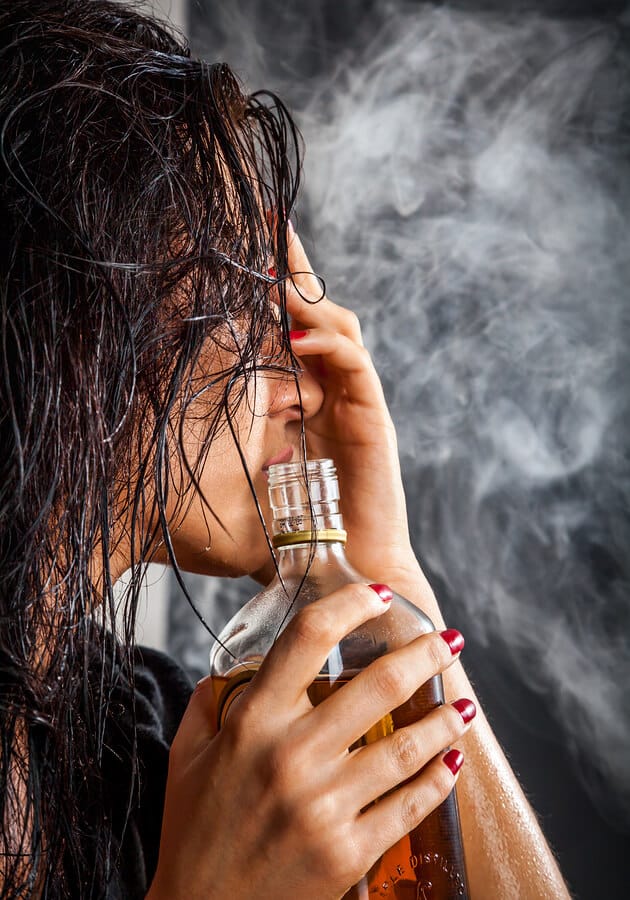
Before I quit drinking, I suffered from minor vision problems, dizzy spells, occasional tingling in my arms and legs, and general confusion. I suffered from these symptoms even when I wasn’t drinking! When I finally detoxed from alcohol, a blood test confirmed that my thiamine levels were indeed very low.
Not surprisingly, alcoholism is the number one cause of vitamin deficiency in the United States and Europe.
How Alcohol Causes Thiamine Deficiency
Alcoholism prevents the absorption and utilization of thiamine in three main ways:
- Liquid meals – Many alcoholics simply don’t consume enough quality foods, often obtaining more calories from liquor than food
- Gut absorption – Alcohol wreaks havoc on the gut and inhibits the absorption of vitamins and minerals in the stomach and intestines
- Diuretic toxin – Since the body treats booze as a poison, it tends to flush thiamine along with other nutrients (especially magnesium) on a cellular level
The second point is very important. Because alcohol damages the digestive tract, it prevents the absorption of many nutrients including thiamine. It can take weeks or months for an alcoholic to achieve gut health, even with a proper diet and nutritional supplementation.
I highly recommend taking probiotics and digestive enzymes. These will help restore balance to your gut and increase the absorption of everything you consume. I have found high quality pancreatic enzymes at my local health food store and I drink kombucha on a regular basis.
How Much Thiamine To Use For Alcoholics?
Dietary sources of thiamine include beans, poultry, red meat, grains, and nuts. Many breads and cereals are enriched with this vitamin. Most people need at least 1-3 mg of it per day, but this is not enough for alcoholics who need to reverse their deficiency.
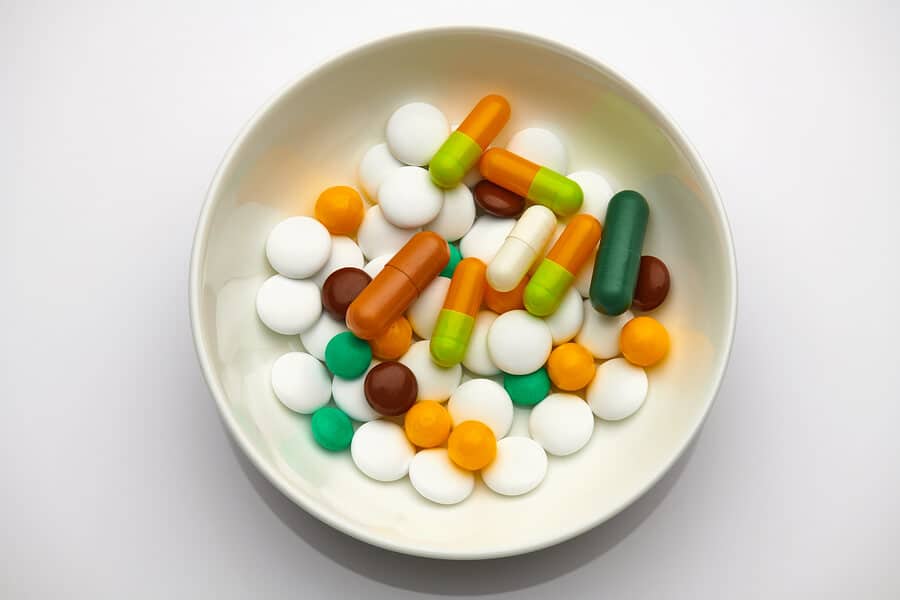
Hospitals often administer IV vitamin B-1 to alcoholics suspected of being at risk for Wernicke-Korsakoff Syndrome. Because these patients have severely damaged their ability to absorb nutrients, doctors usually inject them with over 500 mg of thiamine per day.
In less severe cases of withdrawal, oral vitamin B-1 supplements with lower dosages are often used with great results.
According to Dr. Joan Mathews Larson, an addiction expert who has successfully treated thousands of alcoholics with nutrient repair, the correct dose of oral vitamin B-1 for withdrawal is around 150 mg per day.
I have a few observations about this:
- When I quit drinking, I immediately began taking a standard B-Complex supplement, which contained 100 mg of thiamine.
- Multi-Nutrient Formulas and high-quality multivitamins often contain thiamine, meaning that you don’t need to take this supplement in isolated form.
- I no longer take this because I have restored my natural levels through supplementation – and since I do not drink, I no longer suffer any symptoms of thiamine deficiency.
Alcoholics who begin supplementing with thiamine usually begin to feel noticeably better. They also tend to notice a drastic improvement of cognitive functions, including memory and judgment. This was certainly the case when I began taking this vitamin.
Scientific Research On Vitamin B-1 Dosage For Alcoholics

Many studies have demonstrated that using vitamin B-1 for withdrawal is highly effective for restoring cognitive functions, as well as nervous system and circulatory health. For our purposes here, recent research has led to some relevant conclusions:
- In a controlled study, 200 mg of vitamin B-1 per day improved neurological symptoms in alcoholics (source)
- For patients with withdrawal, two to three weeks of thiamine supplementation is associated with an improvement in mental status (source)
- For alcoholics in withdrawal, several small doses of this vitamin spread throughout the day may be more effective than one or two megadoses (source)
- Incidents of negative reactions to supplemental thiamine are rare and not a sufficient reason to avoid supplementing with thiamine for withdrawal (source)
Conclusion
If you’ve found this article helpful, be sure to check out my other article on vitamins for alcohol withdrawal. In that article and others like it, I’m not arguing that you need to take every remedy I discuss.
With nutritional repair and natural remedies, trial and error is the best approach. I’ve never had a bad reaction to vitamins or natural supplements. Some have simply worked much better than others. The best ones have worked so well that they’ve seriously changed my life.
It’s important to note that vitamins like thiamine are not produced by our bodies. We need to obtain them from food or otherwise take them in supplement form. As I mentioned before, almost all alcoholics are deficient in this vitamin – and diet alone cannot restore their levels quickly.
Basic (high quality) supplements are much safer than prescription drugs that mask the symptoms of underlying nutrient deficiencies. As a case in point, it makes little sense to take a painkiller for a headache caused by a vitamin deficiency. Doing so might even be detrimental, because untreated nutrient deficiencies can cause much more serious complications down the road.
If you have any questions about how much niacin to use for alcoholics, please post them in the comment box below.
Authors
-
A decade+ addiction-free, Chris Scott, the visionary founder of Fit Recovery, passionately guides Fit Recovery 2.0 Members toward a vibrant, healthier lifestyle. Through the integration of groundbreaking nutritional strategies, transformative reframing techniques, neurolinguistic programming, and dynamic pro-recovery habit systems, he inspires individuals to boldly take charge of their lives and break free from alcohol. Chris is celebrated as a Professional Member of the Alliance For Addiction Solutions. Moreover, he is the proud author of the bestselling book "Drinking Sucks!" which stands as a vital beacon of hope for those yearning to quit drinking. Additionally, he created the celebrated online program Fit Recovery 2.0, designed to provide unwavering support for individuals embarking on their recovery journey.
View all posts Fit Recovery Founder & Director -
Dr. Rebeca Eriksen is the Nutritional Consultant for Fit Recovery. She has a PhD in Nutritional Genetics from Imperial College London, and over ten years of clinical experience designing custom nutritional repair regimens for patients recovering from alcohol addiction. In addition to her work at the exclusive Executive Health clinic in Marbella, Spain, she helps to keep Fit Recovery up to date with emerging research.
View all posts



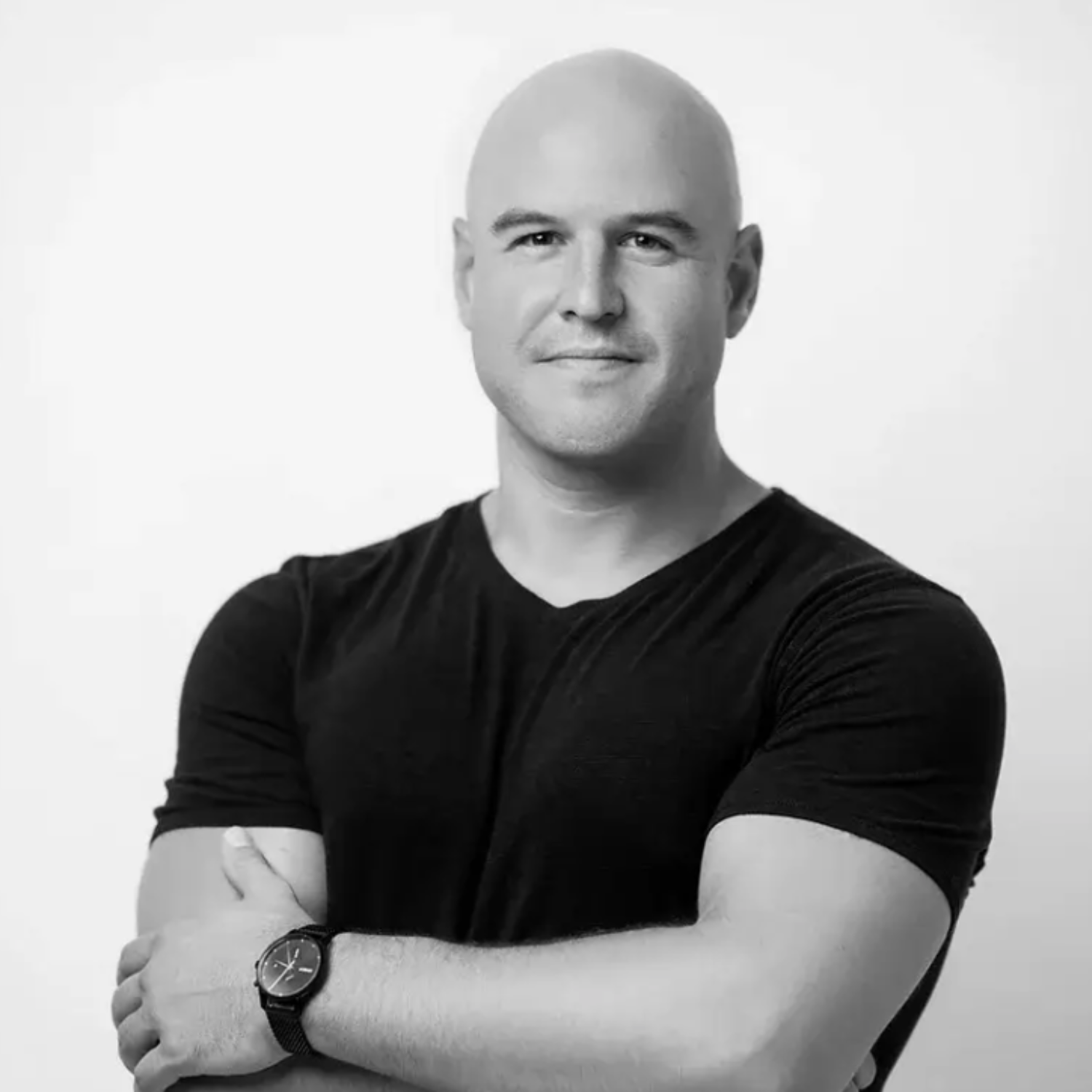




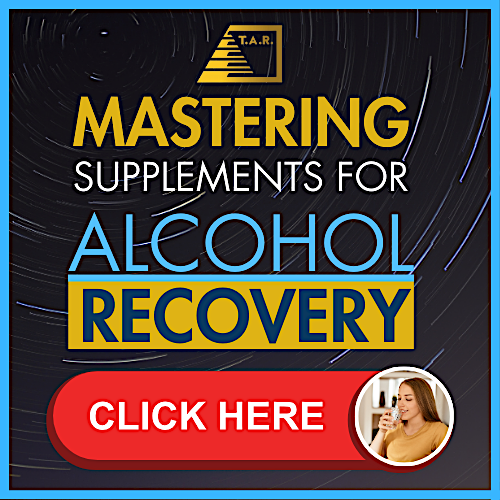
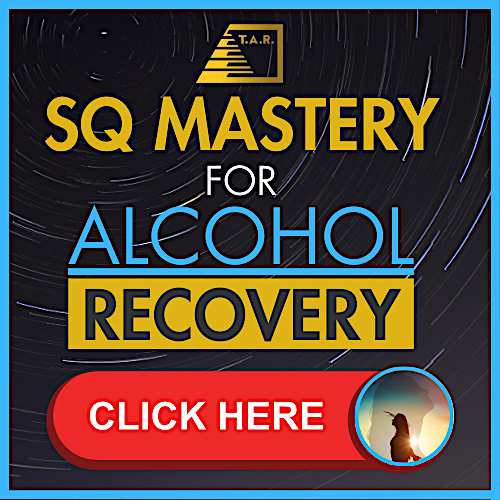


I am POA for my brother who at 83 has mild dementia and recently I have found that he is drinking (and has been for the past 2 – 3 years). His neurologist prescribed Thiamine B1 150 mg once/day. He sometimes doesn’t take any of his medications, probably because he forgets. However, if he took this amount of B1, would it help him to curb his urge to drink? He is getting progressively worse with his short term memory loss as well as confusion and altered gait. Thanks in advance for your response!
Hi Kay, vitamin B1 can be helpful in curbing the urge to drink. I would also look into other supplements depending on which medications he’s on. Best of luck to you!
I’m on day 2 of detox, using Librium for 3 days. 3 day one, 2 on day two and 1 on day 3. I have 100mg of Thiamine and magnesium citrate. Should this be enough to help with detox? Also should I spread out the 150mg b1 throughout the day? Take magnesium all at once or spread out? Thanks
I also have zinc and D3, fish oils I take.
Sounds like a good regimen to start with! I’d suggest taking these particular nutrients in morning and evening, but a lot depends on your unique situation. And there’s always some trial and error. I help people with this process in my online course every day. Best of luck to you buddy.
Excellent book. As a once Highly qualified and successful chartered surveyor and body builder,, I became a pub owner then alcoholic to follow. On road to recovery after too many days in hospital and lala land.
Glad you liked my book David, thanks for sharing and keep it up!
I would like to know more about overdosing on Thiamine I have been taking it for years! but only one per day usually 100mg plus two of the small b complex tablets i still receive i don’t take Alcohol at all but i wasnt told this by any doctor they are very aware i am still taking this amount so i was surprised that i dont actually have to take them anymore…..Thank you
My brother has wet brain. Almost died. Currently stuffers brain damage. Problems with motor skills, eating and speech. Our father passed away in February .I have problems with alcohol too. How much b1 and magnesium? Family just labels him as a drunk. Thanks-Christine
Hi Christine, I’m sorry to hear this. For basic nutrients, I followed the maximum recommended dosage on the bottles for 1-3 months until I felt better. My article on supplementation may of help to you, and you might want to consider these three supplements that can be easily obtained on Amazon. Best of luck!